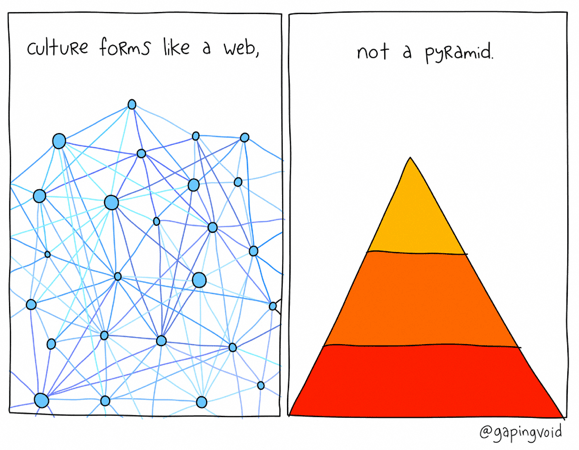I’ve been trying to preach this for what seems like forever, but we tend to be so short-term focused in almost every business process and decision we make in the modern world. How can we make a profit today, F the future!
Your current recruiting issue is not a short-term problem that eventually will just go away on its own. Also, your current recruiting problem has nothing to do with the “Great Resignation”. That was a made-up term by a professor trying to explain a short-term issue we were currently facing, amongst a much larger long-term problem.
The “Great Resignation” is simple economics. We have more jobs than people looking for jobs, so workers have “buying” power. Other companies will pay me more for the same work or give me a promotion with my lessor skills because they have no other options. Straightforward supply and demand economics.
We are already seeing the “economics” of this situation play itself out with higher inflation driven by wage growth and we’ll see more and more adjustments made by organizations to figure it out. Most likely that involves technology replacing parts of jobs, adding human capacity through technology, etc. Organizations can only eat so much in wages before they’ll find a “better” way to skin the cat.
Our problem IS and will continue to be, we have a shrinking workforce that we are doing absolutely nothing to turn that demographic fact around.
Peter Shanosky, wrote a good piece on our aging issue:
The median age in the United States is currently 38.1 years old — a number that reflects a consistent rise in recent years, but not too terrible. That number has been moving up about .15 per year as our largest generation, the oft-discussed boomers, age…
In our professions, then, we would expect to see a median age of around 38. Naturally, that’s not the case, specifically when you get into some of the trades or other professions that aren’t necessarily glamourous. Still, these jobs are essential to our everyday lives. We should not ignore them.
So how far off are they? Well, according to the Bureau of Labor Statistics, we’ve got some wide discrepancies. Looking at just a few:
· Real estate agents: 49.1 years old
· Automotive mechanics: 47.4 years old
· Facilities managers: 50.1 years old
· Bus/Shuttle drivers: 55.6 years old
· Housekeeping/Janitorial: 50.1 years old
· Home health aides: 47.2 years old
· Electrical trades: 46.8 years old
Yikes. There were plenty of professions even older than that, but I picked these for a reason — there’s little barrier to entry. You don’t need a $200,000 piece of paper, and they’re located across the country. You don’t need to live in a growing metropolitan area to have any of these jobs. In other words, based on ease of access, they should be younger. But they’re not.
Why aren’t younger people moving into these roles?
Basically, we have a problem with younger generations not actually wanting to work. There are probably a million reasons, social media, NFTs, influencers, Bitcoin, Meme stocks, etc. If you are 18-30 in today’s world, you are inundated with examples, constantly, of how you can be rich, by not really working, and it all looks so easy!
The problem is, we can’t rely on GenX and young Baby Boomers to keep building our shit! Eventually, they’ll be dead and you’ll be sitting there wondering why the fucking lights won’t come on so you can film your next TikTok video about how to make a million dollars trading make-believe money. Turns out, we need folks willing to get their hands dirty from time to time.
The obvious solution is to increase immigration and create a constant pipeline of workers who want to come to America and actually work. Turns out, regardless of want mass media is trying to get us to believe, millions of immigrants still want to come to America! We actually have jobs that pay money and benefits and overtime and provide training, simply if you have a work ethic! Isn’t that a crazy concept!?
I don’t want young people to think this is all their problem, it’s not! Your parents own a portion of this as well. Someone should have made you work when you were younger. Mow a lawn, babysit, work the fryer at McDonald’s when you were 16, but they were doing pretty good and you were basically not annoying them with your face in your phone, so you didn’t get the opportunity to value work. I think older Millennials, GenX, and Baby Boomers all worked when they were 16 for two main reasons: 1. Our parents refused to give us anything, so we needed money if we wanted something. 2. Our parents couldn’t stand watching us sit around and do nothing, so we were forced to leave the house.
All of this rant about how young people suck, still isn’t the problem!
We aren’t having enough babies!
Probably starts with we aren’t having enough sex, but that’s another post.
Turns out, babies and puppies are a god damn lot of work, and if you don’t like work…well, it’s kind of comes around full circle!
There are 3 ways this will be fixed, and I do believe it will be:
- More Immigrants, like millions and millions more. (BTW – every industrialized, rich country is in the same boat as the US, we just really such at immigration)
- More automation and technology to replace workers. (Already happening, get used to it happening a lot more)
- More babies! Won’t happen anytime soon, and I would guess we might never be able to turn that around.
Or, you and your organization can just believe this great resignation thing will play itself out and we’ll all be back to normal by summer. Have fun with that!
And P.S. – Get off my lawn!

